We ask, we don't answer. What nature is for ME.
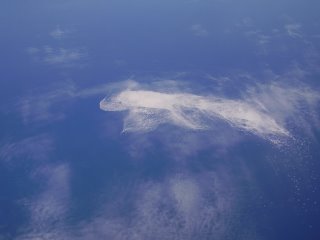 I've observed something funny. When you ask an anthropologist, sociologist or other social scientist about their attitude to some phenomena, they will answer you in all possibly ways but rarely directly. Ask them about what the gender is, what the state is, what ethnicity they belong or how emotions come into being! (Don't ask them about what CULTURE is! - you will surely not catch the next subway! I doubt actually if you would catch any subway at all!:) I think it's typical for any kind of, let's say specialist (especially within the humanities - they are almost never able to give you a simple answer!) But when I ask for example my brother who works with finances what kind of investment would be suitable for me he also starts his lecture: "You know, there is a lot of investments...bla bla bla, it's not so easy as one could suppose..." The same when I want some simple advice from my "computer geek" friends I regret asking once they open their mouths:)
I've observed something funny. When you ask an anthropologist, sociologist or other social scientist about their attitude to some phenomena, they will answer you in all possibly ways but rarely directly. Ask them about what the gender is, what the state is, what ethnicity they belong or how emotions come into being! (Don't ask them about what CULTURE is! - you will surely not catch the next subway! I doubt actually if you would catch any subway at all!:) I think it's typical for any kind of, let's say specialist (especially within the humanities - they are almost never able to give you a simple answer!) But when I ask for example my brother who works with finances what kind of investment would be suitable for me he also starts his lecture: "You know, there is a lot of investments...bla bla bla, it's not so easy as one could suppose..." The same when I want some simple advice from my "computer geek" friends I regret asking once they open their mouths:)When I asked my schoolmates about their attitudes to some phenomena I often heard: "Well, it's not easy to say", "You know, i's socially dependent" or "In some African tribe for example"... Well ok, but how do YOU define "nature" if you want to make research on Indonesian people's attitude to this? What is your perception of death if you are going to write about funeral rituals in rural Ukraine? Shouldn't we first ask ourselves and then create questions? Why should these people know the answer if you don't do this? We do love to ask, but we hesitate to answer. By our interpretations we are creating A LOT OF answers that are not ours and in that we move away, I think, from our own beliefs and convictions.
So when I was on Svalbard for about two months ago I discovered, to my huge surprise, one of "definitions" which is valid for me as an informant, not as "an scientist". I realized what the nature is for ME. And I really found it of great significance for my future work. That gave me a new look at what I am actually able to ask people about and how I could ask them! I've asked myself a thousand and one times about my "private" definition of various terms and I've allways fallen into a trap of "other's definitions of other's definitions." It means that I hardly could erase from my head what I had read on this subject before and be one-on-one with myself. But then we took the plane to Svalbard...
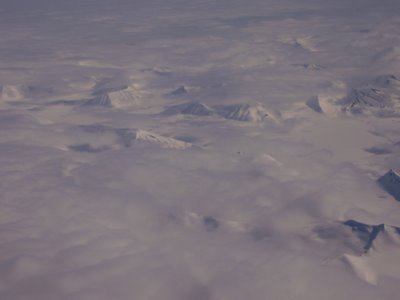

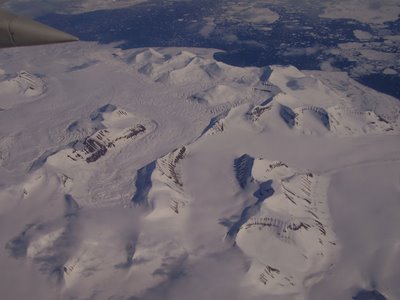
I was enchanted by the greatness, fabulousness and unreality of the place on which we had landed. Yes, there was beauuuuutiful there, especially when flying over snow mountains and hiking on glaciers, but there was something there that didn't let me feel COMFORTABLE. The island was exotic - yes, it was quiet - yes, it was amazing - yes, but NATURAL? - not at all!
Longyearbyen as a coal mining city has only intensified my impression of a non-natural environment. It was the first time ever I had felt so much HUMAN BEING. HUMAN ACTIVITY. I'm not too "green" person, but this time I really saw this "brutal hand". Maybe being aware of being on 78° North and all difficulties that the first "conquerors" had had to overcome enhanced that impression.
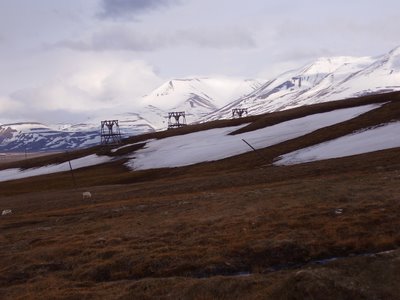

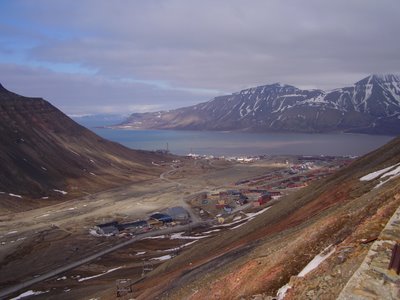
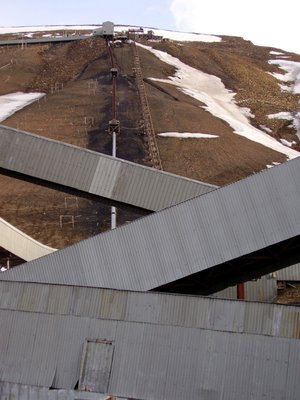
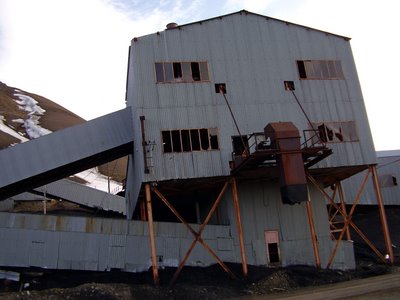
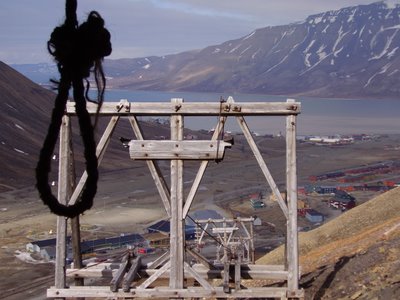
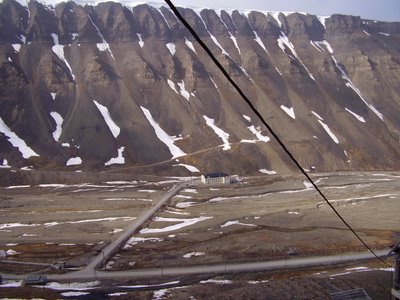
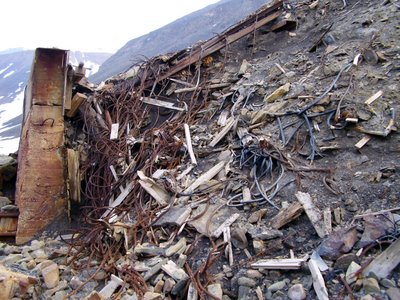
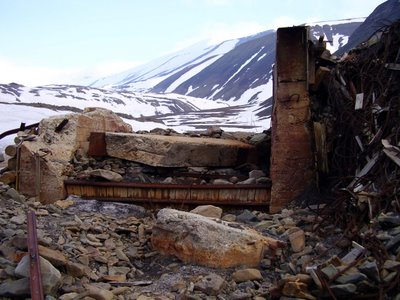
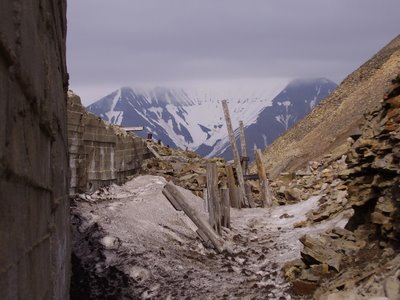
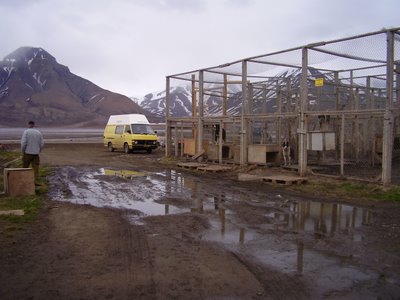
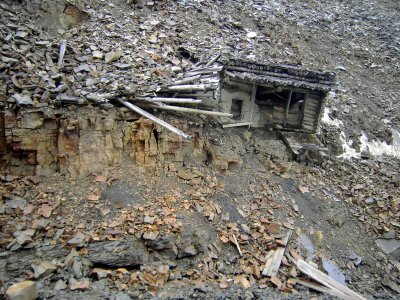 (And all this is labeled as "cultural heritage", something that causes conflicts between the authorities and some ecological groups)
(And all this is labeled as "cultural heritage", something that causes conflicts between the authorities and some ecological groups)
So after a while in a city we took a little walk around and suddenly, without asking, totally unexpected to me I said to my boyfriend:
"You know it's really strange. In all catalogues and tourist guidebooks it is written: "Experience nature in its purest form" or "welcome to the kingdom of nature" or something like this but...I don't actually feel that nature here! I do not feel NATURE here at all! It's strange. Nature is something green, something that grows, that reproduce oneself... Nature should live, shouldn't it? Here I feel like in Hades... I can almost feel death here!"
Longyearbyen as a coal mining city has only intensified my impression of a non-natural environment. It was the first time ever I had felt so much HUMAN BEING. HUMAN ACTIVITY. I'm not too "green" person, but this time I really saw this "brutal hand". Maybe being aware of being on 78° North and all difficulties that the first "conquerors" had had to overcome enhanced that impression.











 (And all this is labeled as "cultural heritage", something that causes conflicts between the authorities and some ecological groups)
(And all this is labeled as "cultural heritage", something that causes conflicts between the authorities and some ecological groups)So after a while in a city we took a little walk around and suddenly, without asking, totally unexpected to me I said to my boyfriend:
"You know it's really strange. In all catalogues and tourist guidebooks it is written: "Experience nature in its purest form" or "welcome to the kingdom of nature" or something like this but...I don't actually feel that nature here! I do not feel NATURE here at all! It's strange. Nature is something green, something that grows, that reproduce oneself... Nature should live, shouldn't it? Here I feel like in Hades... I can almost feel death here!"
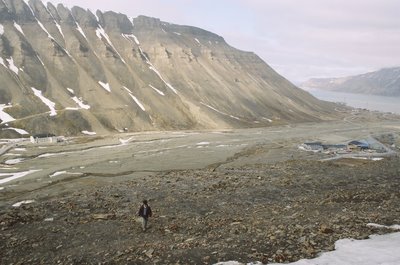
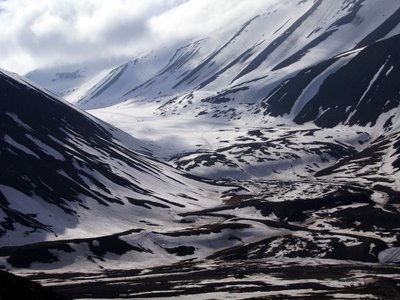

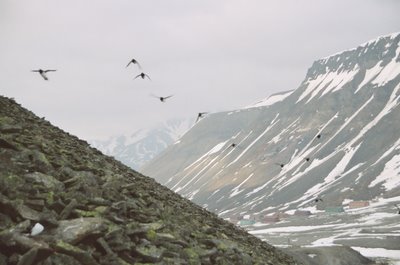
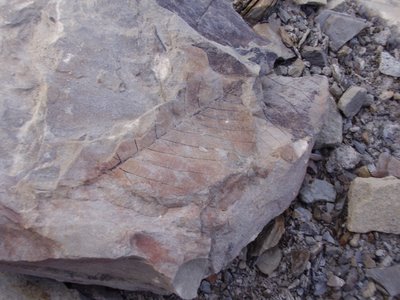
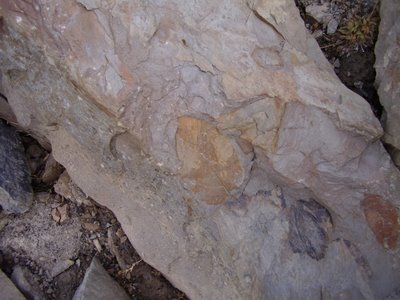
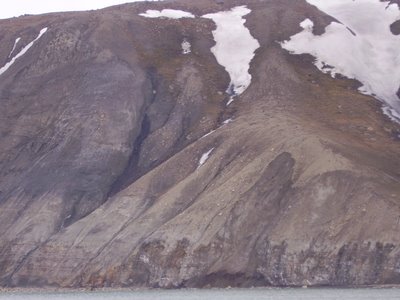
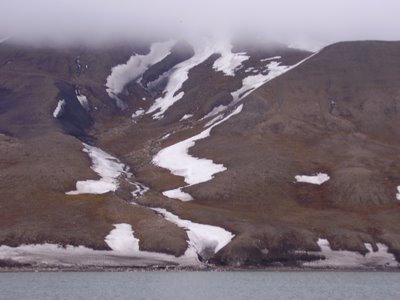

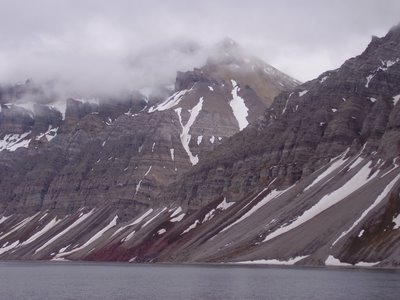
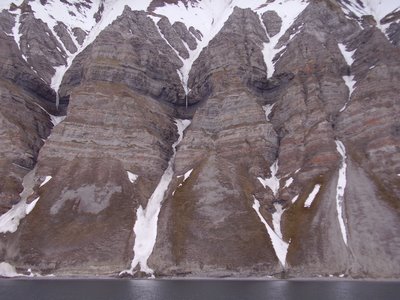

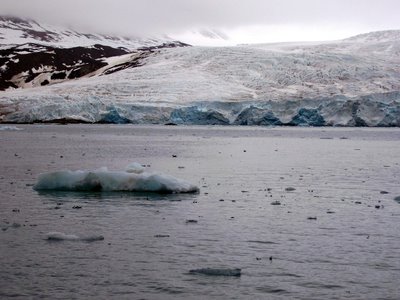
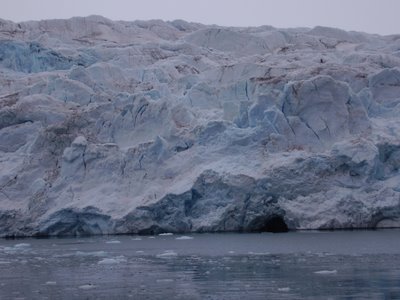 I know this definition has not any scientifical value or validity, but after all every book and theory is based on such statements! I mean that we often have to build some scientifical "knowledge" and "truth" out of our informants' simple statements, stories and words and these ones do have some value for us.
I know this definition has not any scientifical value or validity, but after all every book and theory is based on such statements! I mean that we often have to build some scientifical "knowledge" and "truth" out of our informants' simple statements, stories and words and these ones do have some value for us.There were of course a lot of fabulous places and there was much more light and blue than on these pictures (we saw actually some flowers there too;) but these are my memories and they show Svalbard that I've seen and how I remember it. And apart from that, they fit my words above and my definition of non-nature (heh, it's so easy to create ethnographic examples to ones own theory!!:)
<< Home